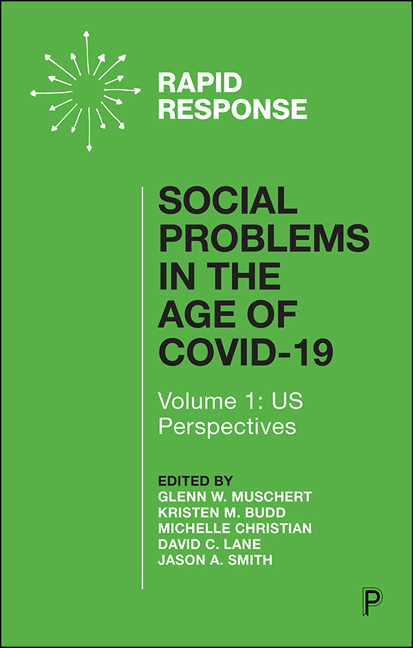11 - Access to Mental Health Care During and After COVID-19
Published online by Cambridge University Press: 23 March 2021
Summary
The Problem
The National Institute of Mental Health estimates that nearly one in five adults in the United States have a mental illness. One in six youth (ages 6–17) have a mental illness. Mental illnesses are left untreated for many people including youth because of the cost and the availability of appropriate services. Data suggest that less than half of adults (43%) with mental illness received mental health services in the past year. This percentage is slightly lower for young adults (18–25 years old), who are less likely to receive mental health services compared to other adults. For youth, access to treatment is more nuanced than for adults because youth often access services in school or through parents/caregivers who agree to take them to community-based or private practice settings. Other disparities exist, with women and girls more likely to receive mental health services than men and boys, and Whites more likely to receive services than other racial or ethnic groups. Further data from the Kaiser Family Foundation found that nearly 17 million adults and 3 million adolescents had a major depressive episode in the last year with nearly a third of the adults feeling worried, nervous, or anxious on a regular basis. These data along with the public attention on suicide rates among youth and the growing numbers of college-aged students inundating student counseling centers across the nation illustrate the extent of the mental health crisis pre-COVID-19.
With the pandemic, mental health professionals and advocates are projecting a more severe mental health crisis, with increases in depressive episodes and anxiety resulting from isolation, job loss, and income security, and new barriers arising for people with mental illnesses and substance use disorders as they access services. Experts caution against “deaths of despair” such as suicide, overdose, and substance use disorders that are likely to also increase. The mental health crisis is further exacerbated by the comorbidities that often exist among clients with mental illnesses and chronic lung disease, asthma, serious heart conditions, diabetes, and other chronic health illnesses that are risk factors for COVID-19. The COVID-19 pandemic has created an increased need for mental health care in a system that was already not working well for many vulnerable, minoritized, and marginalized groups.
- Type
- Chapter
- Information
- Social Problems in the Age of COVID-19 Vol 1Volume 1: US Perspectives, pp. 113 - 121Publisher: Bristol University PressPrint publication year: 2020

